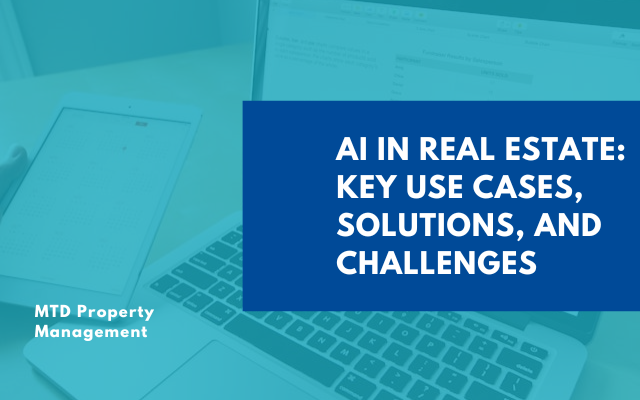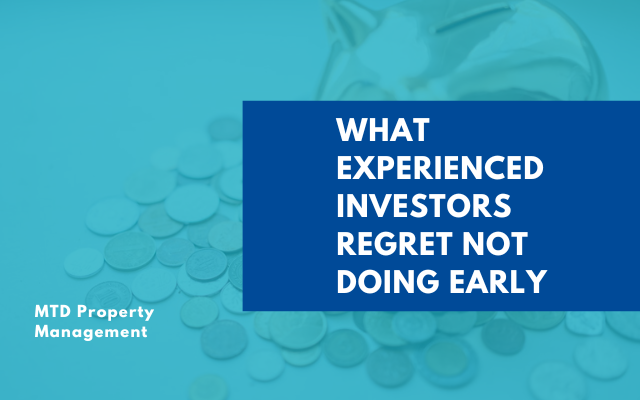How to Be a Long-Distance Landlord

Becoming a full-time landlord can be an extremely lucrative venture, but it’s not without its challenges. For instance, what happens if a landlord has to relocate but wants to keep their investment rentals? Or what if they find a great deal on a property in another state?
Believe it or not, landlords don’t have to physically oversee their remote property to get a good return on their investment! Nowadays, many investors choose to become long-distance landlords or hire property managers. Even if your job requires you to live hours away in a different city, there are ways to easily manage your long-distance rental property or unit while renting it out to reliable tenants.
A property manager can help you ensure that the lease agreement is followed and that all rules are enforced. If you're unsure about local market conditions, you can also work with a real estate agent to help you find the right property or tenants for your long-distance rental.
A property manager will be responsible for making sure that all local laws and rules are followed, and that the price is competitive to attract the right tenants. Additionally, they can help you manage security deposits and ensure that the surrounding community and apartment complex are well-maintained.
At MTD Property Management, we aim to help you find financial freedom and flexibility in the world of real estate investments. In this article, we go over what it means to be a long-distance landlord and how to manage your homes, units, or apartment complexes effectively, even when you're miles away. So, keep on reading for nine tips on how to be a far away landlord.
How to Become a Successful Long-Distance Landlord
Long-distance landlords are investors who own and manage a remote rental property that is located at a considerable distance from their primary residence. Whether you invest in a remote rental home across your state or across the country, being far away can impact how you manage rental property.
Thankfully, there are many platforms that allow tenants to pay rent online, making it easier for landlords to stay on top of rent payments even from afar. Ensuring tenants pay rent on time and understanding and complying with local laws and lease terms becomes even more crucial when you're not nearby.
It’s also important to set up systems that allow tenants to pay rent online, which can streamline your property management process and reduce the risk of missed or late rent payments. Luckily, there are many things you can do to successfully maintain your rental from a distance, including:
1. Select the Right Property

If you’re thinking of investing in real estate in another state, you must choose the right rental property. Landlords should begin by choosing a rental property in a popular neighborhood; otherwise, they might have a harder time finding tenants and earning a stable rental income from far away.
It’s essential to research the local market thoroughly. Start by studying the town’s local economy, population trends, and rental demand—these factors can determine how easy it will be to manage and profit from your property. A good location often means access to jobs, schools, and amenities that improve quality of life, making it more appealing to tenants.
Look for local signs of growth, like new businesses or land development, which can signal a strong rental market. For example, some tips include checking local rental rates, vacancy trends, and neighborhood safety. Understanding the location inside and out helps ensure your investment is built on solid ground.
Additionally, it’s best to consider a rental home that are relatively low-maintenance and has desirable amenities. This will make your life easier and ensure you get a good
return on investment.
2. Market Your Property
To market a rental property effectively, start by creating a strong online listing with high-quality photos, a detailed description, and clear information about rent, amenities, and lease terms. Highlight the property's best features and nearby attractions to catch a tenant's interest. Use popular rental platforms, social media, and local classifieds to reach a wider audience.
Being a long-distance landlord comes with unique challenges, especially when marketing your rental property from far away. Many homeowners can’t afford the travel costs or time needed for in person home tours. Offering flexible showing options, like virtual tours or self-guided visits, can also increase visibility and convenience for prospective tenants. A well-marketed property attracts better tenants and reduces vacancy time.
Virtual tours are a smart solution—they showcase your property’s condition without requiring you to be on-site. Virtual tours can help you save time, attract more qualified tenants, and speed up the move-in process, all while managing your property efficiently from afar.
3. Screen Tenants Thoroughly
Every landlord wants to land a trustworthy tenant, and as a long-distance landlord, this should be your top priority. Since you’re not able to conduct regular property inspections, finding reliable and responsible tenants to move in to your property is crucial.
That’s why you must have an effective tenant screening process in place to ensure that your property is taken care of by a qualified applicant and that your lease terms are being followed.
Additionally, it's important to set up a clear system for handling maintenance requests, ensuring that tenants can easily report issues and that repairs are addressed promptly.
You can also rent to family members, friends or referred tenants but you should be aware of the risks before move in. By conducting comprehensive background, credit, and reference checks on prospective tenants, you can significantly reduce the risk of property damage, problematic or holdover tenants, and evictions.
4. Use Technology
There are many ways you can leverage technology to make your life easier as a landlord. For example, investing in smart home technology, such as keyless entry systems and security cameras, can help you remotely monitor and secure your long-distance investment property.
Additionally, you should consider investing in management software. This can help you keep track of rent payments and ensure tenants pay on time while simplifying the process of renting your property. It also streamlines maintenance requests and organizes important leasing documents, making renting and managing your rental much easier.
5. Keep Open Lines of Communication

Communication is key to building long-lasting relationships with your tenants and resolving issues promptly.
To keep in contact with renters when you’re living out of state, make sure to provide them with your contact information and set up different channels of communication.
For example, it's best to leave an email and phone number so tenants can reach you in a couple of ways.
6. Prepare for Maintenance and Repairs
Maintenance is inevitable when you own a rental home, so it’s best to take a preventative approach. Even as a long-distance landlord, you should inspect your rental home at least once a year as a part of regular property management.
During these inspections, be sure to review essential tenant details like their driver's license and previous residence history. This proactive step can help you spot and resolve problems in your unit before they escalate into urgent and costly repairs.
It’s also important to establish an
emergency fund to cover unexpected maintenance issues that may come up. Additionally, you should have a plan for emergencies. Take the time to search for reliable contractors in the area so you know who to call in case of an emergency.
7. Automate Rent Collection
Rent collection is one of the most time-consuming tasks landlords have to deal with, and collecting rent effectively can become more challenging if you’re
self-managing your rental remotely.
If you’re a long-distance landlord, you should consider automating the payment process to make it easier for tenants to pay rent on time. Whether your rental property is a home or an apartment, an automatic payment system or payment management software can streamline the process.
These tools greatly improve the chances of on-time payments, making it easier for tenants to pay their month's rent and any additional fees while ensuring your unit remains a stress-free investment.

8. Visit Your Property Once a Year
Even if you live away, you must inspect your rental home in person at least once a year. This will help you ensure your unit is in good condition and spot any problems before they turn into more urgent repairs. Plus, it’s a great opportunity to meet your tenants and ensure that tenants are complying with the terms of the lease.
The good news is that visits to your out-of-state rental property may be fully tax-deductible. By deducting the cost of plane tickets, hotel stays, and meals you can save money while ensuring that your investment is in good condition.
9. Hire a Property Manager
A rental property is a huge investment. So, it makes sense to want to ensure it’s always protected. As a long-distance landlord, you won’t be able to physically inspect your rental on a regular basis due to your location. However, you can hire a trusted
property manager.
A local property management business will be familiar with the area and its rental market, so they can help you with all your property management needs, from finding the perfect property to creating lease agreements to marketing your rental home.
These professionals can also manage of the day-to-day operations of property management, including tenant screening, rent collection, property maintenance, lease agreements, and maintaining local contacts with helpers such as cleaners. This way, you’ll be able to rest easy knowing your rental property is in good hands!

Conclusion
Becoming a long-distance landlord can seem challenging, but it doesn’t have to be so! Whether your property is in a bustling city or a quiet suburb, you can successfully manage it remotely with careful planning, good lease agreements, reliable contractors, and efficient technology.
By following the tips in this article, you can do a great job of overcoming the challenges of property management in another city while enjoying the financial rewards. Our tips will help you manage your real estate investments and allow you to benefit from the growth and opportunities in all of your real estate business ventures, no matter your location, making long-distance property management a success.
Many homeowners and landlords hire a experienced property management firm to help eliminate their rental stresses and simplify remote property ownership. With over two decades of experience, MTD Property management has helped many out-of-state investors keep their rental properties safe and profitable.
As your property manager, we’re ready to bring our expertise to your investment and ensure its success. Let us help you achieve your property goals with ease!
Are you looking for professional property management in Chicago? Contact
MTD Property Management today!









